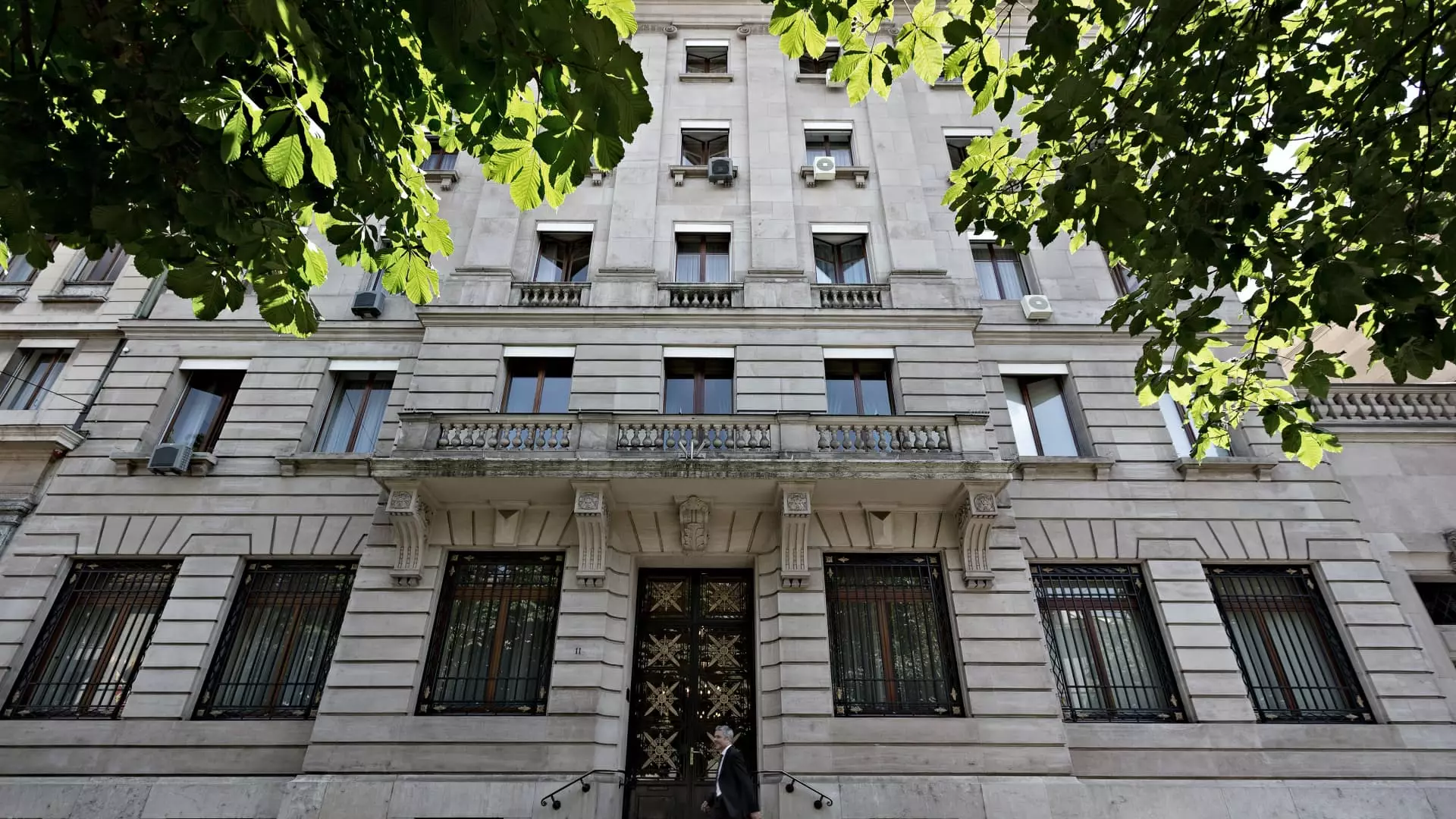Lombard Odier, one of the oldest institutions in the Swiss banking landscape, has recently found itself embroiled in a significant legal controversy. This historic bank is facing charges of “aggravated money laundering,” as declared by the Office of the Attorney General of Switzerland (OAG). The indictment, filed in federal court, implicates not only the bank itself but also a former employee who allegedly conspired to conceal illicit financial gains associated with a high-profile criminal organization led by Gulnara Karimova. Karimova, the daughter of the former president of Uzbekistan, Islam Karimov, is already facing serious legal repercussions and has been indicted herself for facilitating the laundering of substantial illicit funds in Switzerland over a period of several years.
The OAG has pointedly articulated that Lombard Odier and its former relationship manager are accused of playing a crucial role in masking the financial proceeds derived from Karimova’s criminal affiliations. The charges assert that the bank, specifically in its Geneva branch, enabled the movement of money linked to a notorious criminal syndicate known as “The Office,” which operated under Karimova’s influence from 2005 to 2012. This indicates not just individual wrongdoing but potentially systemic failures in the bank’s operational controls and compliance framework, which could have fostered an environment conducive to such illicit activities.
In the wake of these grave accusations, Lombard Odier has staunchly denied any wrongdoing, declaring the claims to be “unfounded and without merit.” The bank expressed its intent to rigorously defend itself against these charges, emphasizing that a formal investigation had been proactively initiated by Lombard Odier itself back in 2016 when the bank reported suspicious activities to authorities. This self-reporting gesture is crucial, as it casts the bank in a light of compliance and ethical responsibility, suggesting that it sought to cooperate with regulatory bodies rather than cover up questionable activities.
Founded in 1796, Lombard Odier’s legacy as a stalwart of Swiss banking is at stake in this case. The ramifications of this indictment may stretch far beyond the immediate legal concerns. Should the court uphold the allegations, it could lead to severe reputational damage, regulatory scrutiny, and possibly hefty fines which would challenge the institution’s longstanding commitment to governance and ethical banking practices. Moreover, the broader implications for Swiss banking practices regarding money laundering and compliance may spark a reconsideration of regulatory frameworks designed to prevent such egregious misconduct.
The Road Ahead
As Lombard Odier prepares its defense, the case is expected to draw increased attention, particularly given its ties to international corruption and the intricate dynamics of money laundering strategies. This legal battle not only marks a significant chapter in the bank’s history but also highlights the need for banks to reinforce their compliance systems against potential corruption. The final outcome will be crucial not only for Lombard Odier but could also resonate through the corridors of global finance as a testament to the ongoing challenges in combating financial crime. The legal proceedings will unfold, and all eyes will be watching to see how this prestigious bank navigates its tumultuous path ahead.

